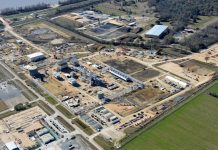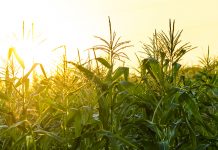Jim Lane
 Address: 1 St James’s Square, London, SW1Y 4PD. UK.
Address: 1 St James’s Square, London, SW1Y 4PD. UK.
Year founded
BP Biofuels was set up in 2006.
BP p.l.c. celebrated its centenary in 2009.
Company description:
BP Biofuels is a leading global biofuels player, with a breadth of investment that is unique in terms of both its scale and its reach. Since 2006, BP has announced investments of more than $2 billion in biofuels research, development and operations, and has production facilities operating or in the planning/construction phases in Brazil and Europe.
BP Biofuels has investments throughout the entire biofuels value chain: from sustainable feedstocks, including cellulosic energy grasses, through to advantaged molecules like biobutanol. BP’s close links into other sectors that will be crucial to the development of the biofuel industry, particularly the automotive industry, and its in-depth knowledge of the fuels market and infrastructure, will underpin the biofuels industry’s intentions to grow to be a more material and sustainable part of the global transport fuel market.
In Brazil, the company has have assets (BP-operated and joint venture assets) producing ethanol from sugar cane today. We were the first international oil company to invest in this industry. BP also has a cellulosic biofuels demonstration facility, producing cellulosic ethanol in Louisiana and a purpose-built R&D facility in San Diego, California, where bioscientists are advancing the technology advancing the technology to commercialize cellulosic biofuels.
BP owns a large portfolio of intellectual property rights throughout the cellulosic biofuels value chain, encompassing proprietary conversion technology.
A BP joint venture, Butamax Advanced Biofuels, is developing the advanced biofuel biobutanol and commissioning a technology demonstration facility in the UK. Also in the UK, in partnership with AB Sugar and DuPont, BP is constructing a 110 million gallon per year wheat-to-ethanol facility. In addition, BP has invested $500 million over 10 years in the Energy Bioscience Institute (EBI), at which biotechnologists are investigating applications of biotechnology to energy.
BP is one of the world’s largest energy companies, providing its customers with fuel for transportation, energy for heat and light, retail services and petrochemicals products for everyday items. It is the largest oil and gas producer in the US and one of the largest refiners. BP also has a global network of around 22,000 service stations. BP blended and distributed more than 1 billion gallons of ethanol in 2008.
Major Investors
BP is a public company, of which BP Biofuels is a wholly-owned subsidiary.
LSE (BP)
NYSE (BP)
Type of Technology(ies)
The BP Biofuels strategy focuses on the fermentation of sugars to produce ethanol, biobutanol and biodiesel.
Feedstocks
– Sugarcane
– Cellulosic feedstocks, on-purpose energy grasses
– Wheat
Products
– BP is producing ethanol from sugar cane in Brazil at operated assets in Minas Gerais and Goias states and a joint venture in Goias.
– In partnership with DuPont (and via a joint venture Butamax Advanced Biofuels), we are developing the advanced fuel molecule biobutanol, which has a higher energy content that ethanol, can be blended at higher rates into fuel that can be used by vehicles on the road today and may be able to facilitate the adoption of biofuels into the fuel supply chain at a faster rate. The partners are constructing a technology demonstration facility in the UK.
– With AB Sugar and DuPont (through a joint venture called Vivergo Fuels), BP is constructing a 110 million gallon-per-year wheat to ethanol plant in the UK. When operating next year, it will produce one-third of the UK’s requirement for ethanol under the UK’s renewable transport fuel obligation (RTFO). Once the technology has been proven at scale, the partners will look to convert the plant to produce biobutanol.
– BP is collaborating with DSM to advance technology for the conversion of sugars into biodiesel. The technology will convert sugars derived from biomass feedstocks (such as sugar cane or dedicated energy grasses) into diesel fuel molecules.
– BP has committed $500 million over 10 years into the Energy Biosciences Institute – working with the University of California Berkeley and its partners, the University of Illinois, Urbana Champaign and the Lawrence Berkeley National Laboratory. The institute is exploring ways in which biosciences can be applied to produce new, cleaner energy fuels, including advanced biofuels.
Past Milestones
• Safe and reliable operations at operational facilities in Brazil
o Industry leading safety performance. Recordable Injury Frequency rates have fallen from 5.5 (annual frequency per 200,000 hours worked) in December 2008 to 1.2 at the end of April 2011 – significantly lower than industry averages.
o Above-expected production levels.
o Acquired majority control of Brazilian sugar and ethanol producer CNAA in April 2011.
• Development of lignocellulosic biofuels:
o Acquired biofuels operations from Verenium Corporation in 2010, including IP, R&D facility in San Diego and a demonstration facility in Louisiana. Also became 100% owners of commercial project in Florida.
• Sugar-to-diesel technology:
Joint development agreement (JDA) between BP and Martek Biosciences Corporation announced August 2009. JDA will establish proof of concept for large-scale, cost effective microbial biodiesel production through fermentation, from biomass feedstocks.
Future milestones
With their JV partners:
• Demonstrate biobutanol technology and develop next steps for commercial deployment (with their partners DuPont, through the joint venture, Butamax Advanced Biofuels).
• Progress development of sugar-to-diesel technologies in partnership with DSM.
• Begin commercial production at world-scale wheat-ethanol facility in the UK (with partners AB Sugar and DuPont, through the joint venture Vivergo Fuels).
• Commercialize biobutanol technology (through the joint venture Butamax Advanced Biofuels).
Business Model:
BP operates throughout the biofuel value chain. They own and operate facilities in Brazil and the US and have joint ventures and joint development partnerships in the Brazil, US and Europe where this gives us access to expertise in the technologies and markets required to ensure success. BP brings scale, infrastructure and fuels market knowledge to these partnerships to drive long-term development of the businesses.
Competitive Edge(s):
• Global scale and reach, and an intent to develop projects that can succeed on a global platform and make a material difference to supplies of sustainably-produced biofuels.
• Breadth of strategy – covering the entire biofuels value chain, from a range of sustainable feedstocks appropriate to different markets, through to the production of advantaged molecules to meet varied consumer needs: ethanol, biobutanol and biodiesel.
• As one of the world’s largest energy companies and a major blender, distributor and retailer of transport fuels, BP has core expertise and capabilities in fuel infrastructure, fuel markets and the requirements of the vehicle parc. This experience will be crucial in scaling-up the biofuels supply chain to meet the needs of consumers.
• Sustainability has been central to the strategic decisions that BP has made about its biofuels business: the feedstocks to invest in, the geographies to focus on and the molecules to pursue. We are developing ways to ensure and report on sustaina
bility throughout our supply chain – including the development of an effective sustainability management system for our biofuels operations. BP is a member of the Roundtable for Sustainable Biofuels, Bonsucro (formerly the Better Sugarcane Initiative), Roundtable for Sustainable Palm Oil and Roundtable for Responsible Soy.
Research, or Manufacturing Partnerships or Alliances.
• DuPont (DD)
• AB Sugar
• DSM
• LDC Bioenergia
• Brazil Ecodiesel
• The Energy Biosciences Institute
Stage (Bench, pilot, demonstration, commercial)
• Commercial production of bioethanol from sugar cane in Brazil.
• Commercial production of bioethanol from wheat under construction in the UK.
• Biobutanol technology demonstration facility in commissioning phase in the UK.
Company website
Disclosure: None.
Jim Lane is editor and publisher of Biofuels Digest where this article was originally published. Biofuels Digest is the most widely read Biofuels daily read by 14,000+ organizations. Subscribe here.








